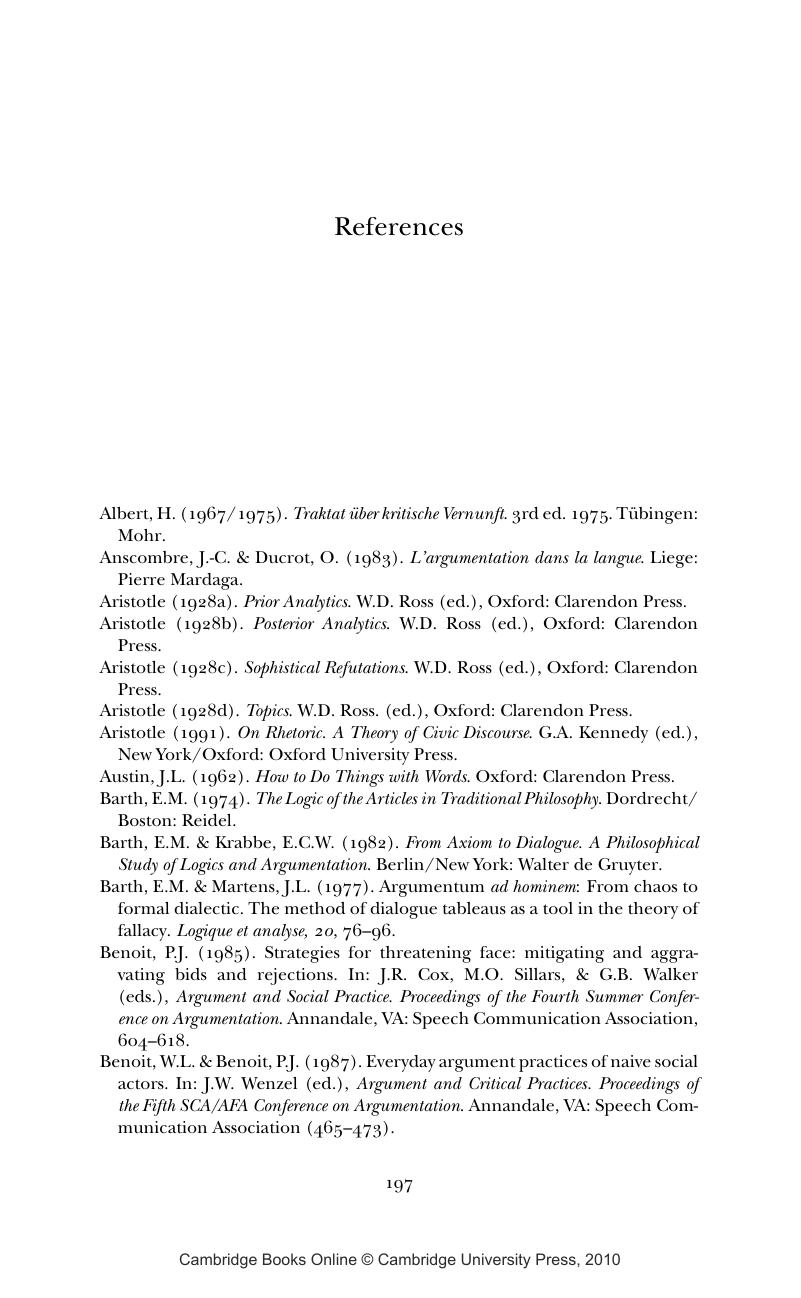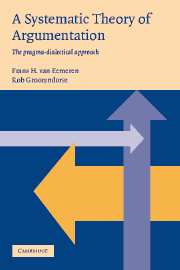References
Published online by Cambridge University Press: 12 January 2010
Summary

- Type
- Chapter
- Information
- A Systematic Theory of ArgumentationThe pragma-dialectical approach, pp. 197 - 206Publisher: Cambridge University PressPrint publication year: 2003
References
- 1
- Cited by



